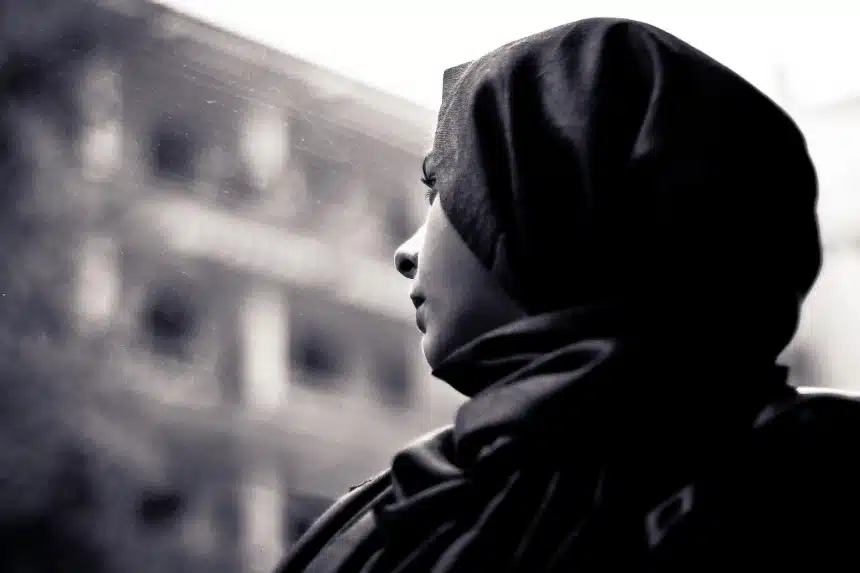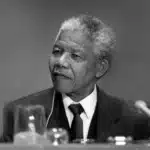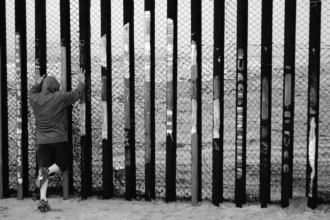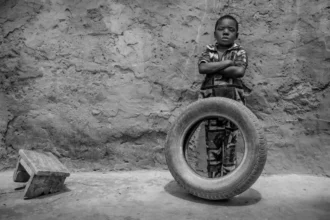Since the late 20th century, my scholarly interests have revolved around the nuanced interplay between religion and cultural dynamics. My academic pursuits were primarily anchored in the ethical dimensions of media and healthcare until a pivotal moment in 2011 catalyzed a shift in focus. The assertion by Prime Minister David Cameron that multiculturalism had not only failed but had also contributed to the radicalization of British Muslims marked a significant turning point. Cameron criticized the state’s multicultural policies for encouraging communities to live in isolation, thereby failing to integrate into the broader societal fabric and align with its values.
- Reasonable Multiculturalism within Liberal Democracy
- Addressing Tradition and Honor: The Intersection of Multiculturalism and Women’s Rights
- France’s Multiculturalism and Laïcité: Navigating Secular Challenges
- Balancing Democracy with a Jewish Identity
- The Essence of Liberal Democracy in Multicultural Societies
This critique of multiculturalism by the Prime Minister, which I viewed as both unnecessary and provocative, seemed to exacerbate the divisions within British society. Prior criticisms had already questioned multiculturalism’s compatibility with democracy and its implications for women and children, yet the assertion linking it directly with extremism and terrorism was extraordinarily irresponsible. This spurred my decision to author a comprehensive volume addressing liberalism, multiculturalism, and tolerance.
The book’s foundational premise posits that not all cultural practices can be justified under the guise of cultural freedom.
In my book Just, Reasonable Multiculturalism, I argue for the feasibility of harmonizing liberalism with multiculturalism, drawing upon the intellectual legacy of thinkers like Kant, Mill, Rawls, Kymlicka, and Habermas. My theory of just, reasonable multiculturalism suggests that liberal democracy can coexist with the rich tapestry of cultural and religious diversity, posing the challenge of determining the liberal state’s legitimate scope of intervention against illiberal cultural practices.
Reasonable Multiculturalism within Liberal Democracy
The book’s foundational premise posits that not all cultural practices can be justified under the guise of cultural freedom. It sets forth a liberal framework for responding to cultural or religious norms that pose potential harm. The early chapters lay out the conceptual underpinnings of just, reasonable multiculturalism, focusing on justice, reasonableness, the art of compromise, deliberative democracy, and the use of coercion.
The concept of “Reasonable Multiculturalism” is a vital aspect of understanding how multicultural values can coexist within a liberal democratic framework. This notion seeks a middle ground where the cultural norms and practices of minority groups are recognized and respected, as long as they align with the overarching values of liberal democracy, such as individual freedom, equality, and justice.
The essence of liberalism argues for equal respect for all humans.
The book delves into the philosophical underpinnings of reasonable multiculturalism, leveraging the Rawlsian concept of justice and the principles of liberal democracy to advocate for a society that respects and accommodates cultural diversity while maintaining a commitment to fundamental democratic values. It addresses the contentious issue of cultural practices that discriminate against women and minorities, illustrating the tension between group rights and the protection of individual rights within multicultural contexts.
Reasonable multiculturalism is proposed as a framework that balances respect for cultural diversity with the need to protect the values of liberal democracy. It emphasizes the importance of reasonableness in policy-making and societal attitudes, suggesting that a commitment to dialogue, mutual respect, and the search for fair compromises can facilitate the peaceful coexistence of diverse cultures within a democratic society.
Addressing Tradition and Honor: The Intersection of Multiculturalism and Women’s Rights
The dialogue on multiculturalism and women’s rights often reveals a challenging intersection where cultural practices conflict with liberal democratic values, particularly concerning women’s autonomy and dignity. Renowned feminist Susan Okin’s critique highlights an important concern: many cultures, under the guise of tradition and honor, impose controls that render women subservient, impacting their ability to lead meaningful lives comparable to men. This raises questions about the compatibility of multiculturalism with women’s rights and liberal democracy.
Okin posits that multiculturalism, by promoting group rights, may inadvertently sustain discrimination against women, advocating for an individual-centric approach to liberalism. This perspective ignites a debate on whether it is feasible to honor group rights without compromising women’s rights. The essence of liberalism, grounded in the dignity of the person, argues for equal respect for all humans, challenging practices that starkly undermine this principle.
This discourse underscores a broader contemplation within liberal societies on how to reconcile the respect for cultural diversity with the imperative to safeguard individual rights, especially those of women and children. Striking a balance requires nuanced, context-sensitive approaches that respect cultural identities while unequivocally upholding the principles of equality and human dignity.
Physical harm, as manifested in practices like female genital mutilation (FGM) or honor killings, utterly violates liberal norms, presenting clear cases where intervention is justified. They have no place in liberal societies and liberal countries should strive to see that those practices cease to exist in their midst. Such practices are not only intrinsically wrong but also represent gross violations of human rights, demanding liberal democracies to act decisively.
Liberalism’s traditional dichotomy between self-regarding and other-regarding actions provides a framework, yet the application in multicultural contexts is fraught with moral dilemmas, especially concerning children’s rights versus communal traditions. Interventions must carefully navigate the fine line between respecting cultural traditions and protecting vulnerable individuals. Two cases in point are male circumcision and denying education to children.
Liberal democracies should balance competing interests.
Regarding the former, I propose a novel way that is safe and as pain-free as possible for the babies, and that would not offend religious sentiments. My proposal provides a middle ground between tradition and protecting the rights of the child. I recommend that male circumcision should be conducted with local anaesthesia. If performed by a qualified physician, a ring block (or inhalation anaesthesia) combined with oral sucrose and EMLA cream is required. If performed by a qualified circumciser, non-invasive local anaesthesia and oral sucrose are required.
Regarding denying education to children, I suggest another reasonable and just middle way between liberal and religious worldviews, one that respects the right of the child to self-development. Liberal democracies should open channels of communication with religious communities that constrict their children’s education (such as the Amish). Through deliberation and search for reasonable and constructive compromises, based on mutual respect and conducted in good faith, liberal democracies should balance competing interests: perpetuating the religious community in question against children’s self-development and children’s right to an open future. In the same vein, I raise a clear voice against the denial of women’s education.
The last part of the book examines two significant country cases: one focused on the challenges and tensions of multiculturalism in France, and the other delving into the cultural and political complexities in Israel. Both societies discriminate against minorities in the name of security.
France’s Multiculturalism and Laïcité: Navigating Secular Challenges
In France, the reaction to various forms of face coverings, from anti-pollution masks to Muslim veils, highlights a broader societal unease rooted in the inability to see faces. This unease underscores the importance of facial expressions in social interactions, reflecting deeper issues of multicultural acceptance and integration. The French state’s approach to multiculturalism, particularly its handling of Islamic customs, reveals the tension between secularism and cultural diversity.
The French model of republicanism contrasts sharply with Anglo-Saxon liberalism’s emphasis on individual rights and pluralism.
Indeed, the debate over Muslim dress in France, often perceived as a secular vs. religious freedom issue, highlights the complex interplay between maintaining secularism and accommodating cultural diversity. This tension reflects a broader struggle to align France’s secular republican values with its multicultural reality. As France continues to navigate these challenges, the balance between upholding secular principles and respecting cultural diversity remains a critical concern for the Republic.
France’s struggles with integrating Muslim communities have been exacerbated by terrorist attacks, leading to increased fear, resentment, and suspicion towards Islam. These challenges have sparked intense debates on citizenship, immigration, and the role of laïcité.
Laïcité, designed to maintain a secular public space, has been at the forefront of these debates, especially concerning Islamic dress codes in schools. The 1989 headscarf controversy and subsequent policy responses, including the Stasi Commission’s recommendations, underscore France’s efforts to reconcile public secularism with religious freedom.
My research demonstrates how the concept of multiculturalism is understood differently in the Anglo-Saxon world and France. While in the Anglo-Saxon discourse, multiculturalism is criticized yet some liberals embrace multiculturalism and perceive it to be enriching and desirable, in France critiques of multiculturalism are harsher, framing multiculturalism as a dangerous concept that is detrimental to democracy, women’s rights, and public order.
Yet, these critiques fail to acknowledge multiculturalism’s potential to enhance democratic values if protective mechanisms for vulnerable groups are established. The French model of republicanism, characterized by a strong unitary state and a preference for political liberties over personal freedoms, contrasts sharply with Anglo-Saxon liberalism’s emphasis on individual rights and pluralism.
Balancing Democracy with a Jewish Identity
In addressing the situation in Israel, the book investigates how the nation navigates the intricate task of aligning its Jewish state identity with its liberal democratic goals, particularly regarding its Arab/Palestinian significant minority (21% of the population). This minority’s diverse self-identifications—as Palestinian, Arab, Israeli Arabs, or Palestinian Arabs in Israel—reflect the overarching challenge of upholding equitable rights and liberties in a state that emphasizes its Jewish essence.
Jewish nationalism has sometimes been reinforced at the expense of liberal egalitarian principles.
This tension between Israel’s democratic ideals and its Jewish identity is central to understanding the state’s approach to multiculturalism and minority rights. While Israel aspires to uphold liberal democratic values, the reality for its Arab/Palestinian citizens often reflects a gap between these aspirations and their lived experience. This gap raises questions about the authenticity of Israel’s democracy and its commitment to genuinely inclusive practices.
As a young democracy under continued stress, Israel’s journey is marked by its efforts to embrace national, cultural, and religious diversity while navigating the inherent challenges posed by its security concerns and the priority given to Jewish values. The state’s legal framework and policies have historically leaned towards reinforcing Jewish nationalism, sometimes at the expense of liberal egalitarian principles. Despite efforts to accommodate and compromise, a fully inclusive approach to egalitarianism remains elusive.
The dialogue around minority rights, religious freedom, national identity, democracy, security, and peace in Israel continues to evolve, reflecting the complex task of achieving a multicultural democracy that respects its diverse population. Israel’s attempt to balance its Jewish essence with democratic principles underscores the ongoing debate and the need for a path that honors both its commitment to its citizens and its foundational identity. The task of rounding the circle, maintaining both the Jewish and the democratic characters of the state, is not easy to achieve.
The Essence of Liberal Democracy in Multicultural Societies
Liberal democracies embody the principle that all individuals are free and equal, deserving mutual respect and recognition. This foundational belief underscores the importance of participatory democracy, where every citizen has a voice in decisions affecting their lives. Such inclusivity enriches democracy, allowing for a diverse range of conceptions of the good life to coexist and benefit society collectively. However, the democratic challenge in multicultural contexts is delineating boundaries to ensure that minority cultural practices do not infringe upon the liberal democratic values of respect, equality, and minimising harm.
In addressing cultural practices that cause harm, whether physical or non-physical, liberal democracies are tasked with a delicate balancing act. The state must act as an impartial umpire, applying justice fairly while reconciling divergent interests without bias or self-interest. This involves safeguarding individuals, particularly women and children, from cultural norms that deny them their basic human rights in the name of tradition or honor.
Rejecting the notion that multiculturalism is detrimental to democracy or inherently harmful to women, this approach calls for protective measures to uphold human rights universally. True multiculturalism, supported by liberal principles of freedom and human dignity, asserts that cultural prosperity and identity respect are not only compatible with but also enrich democratic societies. Education plays a paramount role in this context, enabling minority groups to maintain their cultural heritage while aligning with broader societal values.
Citizen participation is important as well. Furthermore, this nuanced approach to multiculturalism in liberal democracies emphasizes the need for deliberative democracy, where open dialogue and compromise facilitate a just and reasonable coexistence of diverse cultures. By valuing the contributions of all cultural groups and respecting individual autonomy within a framework of mutual recognition, liberal democracies can navigate the complexities of multiculturalism, ensuring that the vibrant mosaic of cultural identities strengthens the democratic fabric rather than undermines it.









